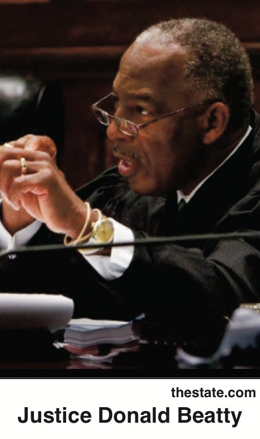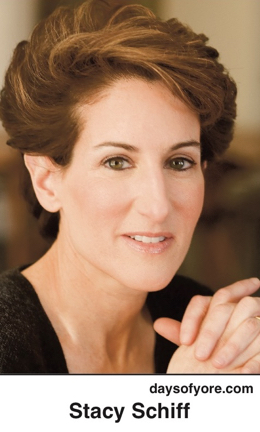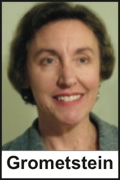Rascals case in brief
In the beginning, in 1989, more than 90 children at the Little Rascals Day Care Center in Edenton, North Carolina, accused a total of 20 adults with 429 instances of sexual abuse over a three-year period. It may have all begun with one parent’s complaint about punishment given her child.
Among the alleged perpetrators: the sheriff and mayor. But prosecutors would charge only Robin Byrum, Darlene Harris, Elizabeth “Betsy” Kelly, Robert “Bob” Kelly, Willard Scott Privott, Shelley Stone and Dawn Wilson – the Edenton 7.
Along with sodomy and beatings, allegations included a baby killed with a handgun, a child being hung upside down from a tree and being set on fire and countless other fantastic incidents involving spaceships, hot air balloons, pirate ships and trained sharks.
By the time prosecutors dropped the last charges in 1997, Little Rascals had become North Carolina’s longest and most costly criminal trial. Prosecutors kept defendants jailed in hopes at least one would turn against their supposed co-conspirators. Remarkably, none did. Another shameful record: Five defendants had to wait longer to face their accusers in court than anyone else in North Carolina history.
Between 1991 and 1997, Ofra Bikel produced three extraordinary episodes on the Little Rascals case for the PBS series “Frontline.” Although “Innocence Lost” did not deter prosecutors, it exposed their tactics and fostered nationwide skepticism and dismay.
With each passing year, the absurdity of the Little Rascals charges has become more obvious. But no admission of error has ever come from prosecutors, police, interviewers or parents. This site is devoted to the issues raised by this case.
On Facebook
Click for earlier Facebook posts archived on this site
Click to go to
Today’s random selection from the Little Rascals Day Care archives….
Click for earlier Facebook posts archived on this site
Click to go to
Today’s random selection from the Little Rascals Day Care archives….
Parent said God knew better than ‘Frontline’
April 17, 2013
“One day you will stand before almighty God and be accountable for that which you have done here on Earth, and no amount of lies and manipulation, no ‘Frontline’ presentation will be able to hide the truth from him. He knows every sordid detail and I pity you for that.”
– From a statement read by Little Rascals parent Susan Small at the plea-agreement hearing of Scott Privott (June 16, 1994)
On the scale of responsibility for brutalizing the Edenton Seven, the panicked, misinformed parents may rank as least culpable. They were neither demagoguing public servants (the prosecutors) nor overreaching professionals (the therapists). Even so, Susan Small’s tirade seemed gratuitously vitriolic – as if her own beliefs might have needed reinforcing?
I asked Scott Privott what it felt like being on the receiving end that day in the courtroom.
“I almost got up and told her to shut the hell up and that I would let the state put me on trial,” he said. “I thought to myself that I was glad God would judge me and not her and her pathetic cohorts.”
Scott’s recollection of his earlier knowledge of Susan Small highlights the Lilliputian stage on which the sprawling Little Rascals drama played out:
“I was in college with Susan Small’s husband, Morris; in fact, Morris and I used to ride together from Edenton to Elizabeth City to attend classes at the College of the Albemarle. Susan was at the college too, but I didn’t know her that well. Morris was my banker at the time of my arrest.”
A third member of the car pool: Jay Swicegood, another accusing parent.
“I am not like some of those who’ve been falsely accused and hold no ill feelings,” Scott says. “I have plenty of ill feelings, and I do not for one moment wish them any good tidings.”
Idle thought: Might it mitigate Scott’s bitterness if someone – anyone! – who participated in putting him behind bars for three years and eight months had the courage to apologize?
The unenlightened self-interest of prosecutors
 May 16, 2014
May 16, 2014
Exhibit A:
“Last year at a state solicitors’ convention in Myrtle Beach, (South Carolina State Supreme Court Justice Donald Beatty) cautioned that prosecutors in the state have been ‘getting away with too much for too long.’ He added, ‘The court will no longer overlook unethical conduct, such as witness tampering, selective and retaliatory prosecutions, perjury and suppression of evidence. You better follow the rules or we are coming after you and will make an example. The pendulum has been swinging in the wrong direction for too long and now it’s going in the other direction. Your bar licenses will be in jeopardy. We will take your license’….
“If most prosecutors are following the rules, you’d think they’d have little to fear, and in fact would want their rogue colleagues identified and sanctioned….The state’s prosecutors didn’t see it that way….
“At least 13 of the head prosecutors in the state’s 16 judicial districts, along with South Carolina Attorney General Alan Wilson, are asking for Beatty to be recused from criminal cases. This would presumably end his career as a state supreme court justice….”
– From “Judge says prosecutors should follow the law. Prosecutors revolt.” by Radley Balko in the Washington Post (March 7)
Exhibit B:
“….Decades of studies show eyewitness testimony is only right about half the time – a reality that has prompted a small vanguard of police chiefs, courts and lawmakers to toughen laws governing the handling of eyewitnesses and their accounts of crimes….
“Prosecutors, however, have opposed the efforts, arguing that the changes erode their powers, even as studies have shown that eyewitnesses are about half as likely to choose the correct suspect out of a lineup as they are to choose some combination of the innocent fillers or no suspect at all when the correct one is present. The reexamination of eyewitness testimony comes at a time when technology and other forensic analysis are being given greater weight….”
– From “Eyewitness Testimony No Longer A Gold Standard” by Nigel Duara of the Associated Press (April 19, 2014)
TV prosecutor Jack McCoy suffered his own ethical dark nights of the soul, but I can’t imagine him finding much in common with such miscreants as these.
It wasn’t just Edenton where lips were zipped
 Sept. 5, 2015
Sept. 5, 2015
“An 1895 reporter found (Salem) town residents reluctant to talk about the past.
“When they did, it was to impress upon him that they had not burned a single witch. Years later Arthur Miller met with the same silence while researching The Crucible. ‘You couldn’t get anyone to say anything about it,’ he complained of 1692….
“When (an archivist) began an excavation of the parsonage site in 1970, two elderly sisters waved fists at him from across the way…. ‘What are you bringing this up for?’ they demanded….”
– From “The Witches: Salem, 1692” by Stacy Schiff (due Oct. 27)
Schiff has a lengthy related piece in the current New Yorker.
One thing led to another…. boy, did it ever!
 Nov. 16, 2012
Nov. 16, 2012
“In North America in the 1980s, the moral panic about organized child abuse arose in a context that included the following scares:
- “a moral panic about satanic activity;
- “a scare about missing and murdered children;
- “great public anxiety about incest, redefined as child sexual abuse during the 1970s;
- “a wave of disputed custody cases in which women accused their former husbands of sexually abusing children during court-ordered visitations;
- “self-help books by women claiming to be ‘survivors’ of incest and ritual abuse;
- “therapists’ claims that many of their adult women patients suffered from multiple-personality disorder as a result of severe childhood sexual and ritual abuse.
“Of particular importance were claims that society was in denial about widespread child sexual abuse…. Thus, claims about organized child abuse by caregivers were made in a context of claims about similar issues, and the effect of claims in one panic was to reinforce claims in another.”
– From “Wrongful Conviction and the Moral Panic About Organized Child Abuse: National and International Perspectives” by Randall Grometstein (2005)











0 CommentsComment on Facebook